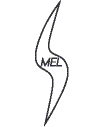About
Nowadays, the institute comprises the following research and didactics divisions:
Division of Power Engineering,
Division of Rational Use of Energy,
Division of Refrigeration and Energy in Buildings,
and the two special laboratories:
Computer Sciences Laboratory,
Thermovision Services Laboratory.
The devoted academic staff consists of 10 professors (both tenured and full), 5 associate professors (D.Sc.), 22 assistant professors (PhD), 4 senior lecturers and 1 assistant. Most of them are well known specialists, recognised all over the world as prominent experts.
The research activities of the Institute of Heat Engineering are pursued in the following main areas:
- cooling and air conditioning;
- low temperature technology;
- low temperature plasma;
- new ceramic coatings spraying;
- waste destruction using plasma;
- clean coal technologies;
- fluidized boilers;
- methods for modelling of boilers and turbines under off design conditions;
- research methods in transitional states;
- power systems structures;
- communal and industrial power economy;
- nuclear engineering and nuclear safety;
- flow and heat meters (for certification purposes);
- retrofits of small and medium size steam turbines;
- retrofits of steam boilers a specially the fluidised ones;
- power units simulators;
- advanced control devices;
- reliability problems in power engineering systems and energy supply;
- centrifugal pumps;
- power plants;
- power management (environmental protection, central heating);
- small water turbines and pump turbine systems;
- characteristics of large pumps in situ measurements;
- combustion in piston engines (new ignition systems, variable compression ratio engine, alternative fuels hydrogen, natural gas);
- combustion and detonation processes (flame propagation and shock waves), explosions inside industrial equipment, combustion in constant volume chamber at zero-gravity;
- combustion chambers and burners;
- computer simulations of combustion and detonation processes (flows and combustion inside piston, turbine and rocket engines) detonation waves, flame propagation, combustion in burners and chambers;
- measurements of thermal properties;
- heat storage;
- computer methods in heat transfer;
- thermo-electric energy conversion, cooling, electric current generation;
- heat exchange in complex media (porous media, insulations, composites);
- heat exchange under phase changes;
- heat transfer in combustion engines;
- laser shock effects on solids;
- photo-thermal solar energy conversion;
- sources and energy conversion;
- heat transfer in extremely loaded blades and elements of aircraft engines;
- low temperature plasma physics.
On 15 May 1999 the following institutions:
- Institute of Heat Engineering Warsaw University of Technology, Warsaw,
- Institute of Power Engineering, Warsaw,
- Institute of Fundamental Research Problems of Polish Academy of Sciences, Warsaw,
- Institute of Aviation, Warsaw,
- General Mining Institute, Katowice.
signed the agreement to open
The Integrated Heat Laboratory (IHL)
at The Institute of Heat Engineering of Warsaw University of Technology.
The IHL aims at solving the following research problems:
- transitional states in hydrogen turbines;
- dynamic of industrial dusts explosions and for their suppression;
- controlled combustion in engines and burners;
- low emission processes of coal burning in energy boilers;
- new multi-criteria methods for power installation control;
- application of low temperature plasma techniques to anti-erosion coatings and heat barriers and toxic-waste utilisation;
- thermal properties of materials and their stability under phase changes;
- visualization and modelling of phase change processes at binary systems and heterogenic boiling;
- application of low temperature energy storage processes to cooling and air conditioning.
Some important achievements of the Institute should be emphasized here, especially in the field of development of new research methods:
- new methods of simulation of transient processes in a power plant;
- methods of combustion optimisation in coal boilers using the neural networks;
- original methods of mathematical modelling and experimental investigation of gas and dust combustion and explosions;
- new methods of mathematical modelling and visualization of combustion processes in IC engines;
- effective full-field visualization techniques for velocity and temperature fields in heat transfer and fluid flow problems.
The New Total Power Plant Performance Monitoring System has been invented and constructed at the Institute, as well as the a new idea of spiral heat exchanger as a latent heat thermal energy storage unit has been put forward.


